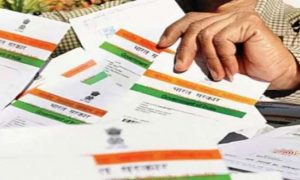The Delhi High Court on Tuesday dismissed a petition filed by several “premature retirees” from the Indian army and Air Force, seeking a pro-rata service pension due to the non-completion of 20 years of service. The petitioners argued that authorities have overlooked the periods of pre-commissioning military training and reserve service. The case goes to Armed Forces Tribunal.
Read More:-RBI Likely to Maintain Status Quo in Upcoming Monetary Policy: SBI Chairman
The Delhi High Court on Tuesday dismissed a petition filed by several “premature retirees” from the Indian Army and Air Force, seeking a pro-rata service pension that was allegedly being denied due to the non-completion of the stipulated 20 years of service.
Premature retirement refers to the departure of a government employee from service before or after reaching the age or completing the qualifying service as defined in the role under the government charter.
Read More: Public Provident Fund (PPF) Interest Rate July-September 2023: Will Finance Ministry hike rate?
However, a bench headed by Chief Justice Satish Chandra Sharma granted liberty to the petitioners to approach the Armed Forces Tribunal (AFT) with their grievances.
“It becomes prudent to steer the petitioners towards a path of redressal that is more fitting, efficient and effective, that is, the AFT. Adopting this approach aligns with the best interests of the petitioners,” the bench, also comprising Justice Sanjeev Narula, said.
“The present PIL is dismissed, along with any other pending applications associated with it. The petitioners are granted the liberty to articulate the grievances urged in this petition before the Armed Forces Tribunal,” the court said.
The petitioners challenged the regulation that stipulates a minimum qualifying service of 20 years to receive a pension and submitted that owing to circumstances beyond their control, they had to take early retirement after successfully completing 10 years of service and the early exit was sanctioned by the competent authority.
Broadly, the Indian armed forces’ pensions Pension scheme come under three major regulations such as Regulations for the Army (PRA), 1961, revised as PRA, 2008, Pension Regulations for the Air Force, 1961, and Navy (Pension) Regulation, 1964.
For the Service pension, the minimum qualifying service to earn a pension is 20 years in the case of Commissioned Officer and 15 years in the case of Personnel Below Officer Rank.
Read More:-Loan Against FD: How to apply online, eligibility criteria & documents required
Petitioners argued that the authorities deprived them of pro-rata service pension by erroneously presuming that 20 years of commissioned service is an essential pre-condition for receiving the pension.
The petitioners said the authorities have conveniently overlooked the periods of pre-commissioning military training and reserve service. It was argued that cumulatively, the number of years exceeded the qualifying service period of 20 years for the grant of service pension and were integral and contributory to their total service tenure.
The curious case of premature retirement
As the reason could be varied for officers or soldiers who may seek early retirement after 20 years of service such as personal reasons or health concerns.
However, premature retirees are largely those who seek a departure from the military service due to serious medical/ health conditions which may have been caused during operations or related military activities.
Read More:-BLS E-Services integrates UMANG into its digital platform
“In that case, the retires are eligible for the pension,” says a military officer from the Indian army.
Even if any soldier seeks a retirement before the completion of 20 years, it will be known as Premature retirement. Also, there is a difference between early retirement and compulsory retirement. In the case of compulsory retirement, an individual soldier or officer can be asked to go due to disciplinary or performance difficulties. In both cases and especially in premature retirement, the decision taken by military personnel must be approved by the appropriate authorities.
For example, in case of a soldier who claims unfit due to diabetes must be checked and certified by the board of doctors in the designated military hospitals for comprehensive evaluation.
Read More:-FIRST TRADE: Nifty opens above 19,800, Sensex tops 67,000; IndusInd Bank up 3%
The court also noted that the AFT, which is competent to hear the challenge to the vires of the subordinate legislations, rules, regulations etc., would provide a more expedient resolution for the petitioners’ grievances due to its specialised nature.
It also observed that the petitioners have a “direct, personal stake in the matter, for which ordinarily, a PIL is not the preferred route”.
“It would be pertinent to note that the petitioners are squarely covered under the jurisdiction of the Armed Forces Tribunal Act, 2007 and have a specialised avenue — the Armed Forces Tribunal — for voicing their grievances,” the court said.
Read More:-Stock Market Updates: D-Street Bulls Charge! Sensex Tops 67K, Nifty Above 19,800; IndusInd Up 3%
“All rights and contentions of the parties are left open,” it clarified.
This year also marks as an important milestone for military veterans as Government implemented the one rank-one pension (OROP) scheme with arrears to the military pensioners. OROP implies that uniform pension is paid to the armed forces personnel retiring in the same rank with the same length of service regardless of their date of retirement.
Catch the latest Stock market updates here. For all other news related to business, finance, tech, sports, and auto, visit OfficeNewz.com.

































